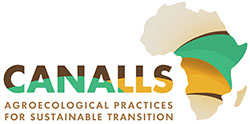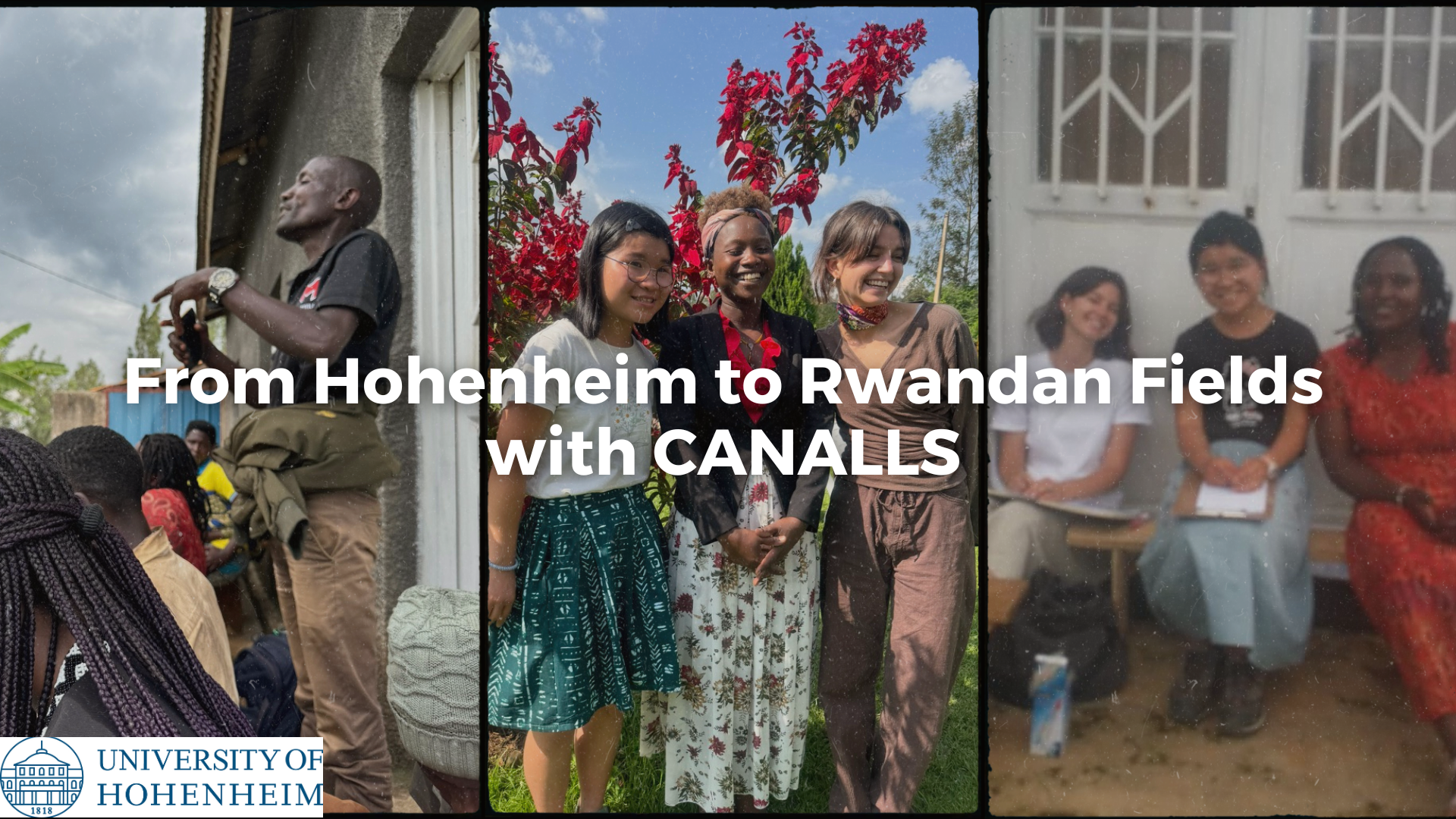Driven by a desire for research that transcends mere theory, Laura Eckhardt, a Master's student from the University of Hohenheim, important partner of CANALLS, embarked on a transformative journey. She chose to conduct her thesis research within the framework of the CANALLS project, exploring real-world agroecological solutions. Read her story below!
When I began my master’s thesis, I knew one thing for sure: I didn’t want to do research that stayed in theory. That’s why I chose to conduct my work within the CANALLs project (Collaborative Action for Agroecological Learning and Livelihood Sustainability) – a transdisciplinary approach that develops sustainable agriculture in everyday life, together with smallholder farmers.
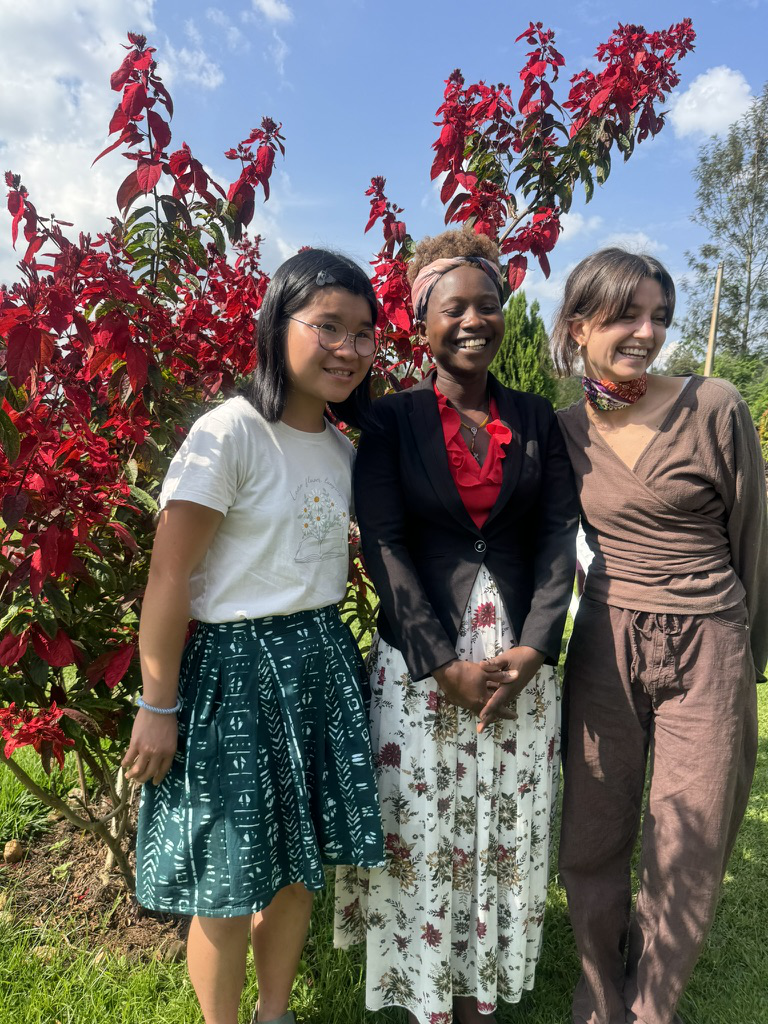
My research focused on smallholder farmers in the Kamonyi district of Rwanda — one of the eight Agroecological Living Labs (ALLs) of the CANALLS project, operated by the Rwanda Agriculture and Animal Resources Development Board (RAB). I explored how they perceive agroecology, what challenges they face, and how their perspectives change through participation in so-called Agroecological Living Labs (ALLs). These labs are not traditional training sessions but spaces where local knowledge, scientific expertise, and collaborative learning come together on equal footing.
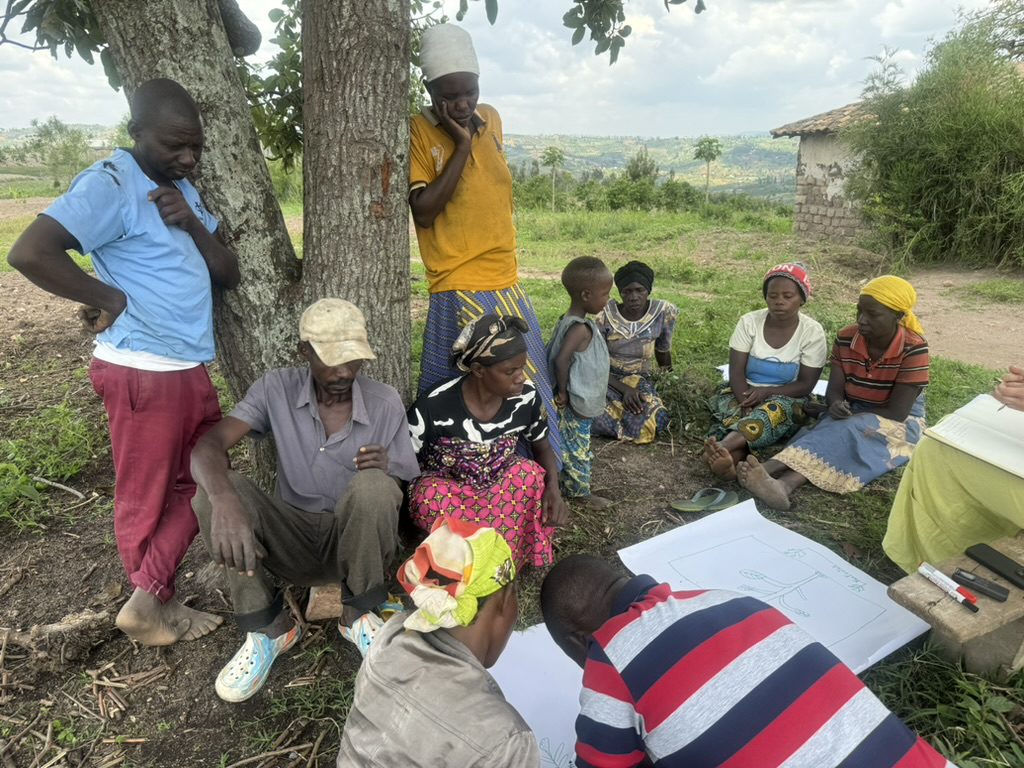
What I learned through this process was profound. Many farmers already practice sustainable methods – yet structural barriers like land scarcity, lack of market access, or restrictive political regulations make real change difficult. One thing became especially clear: when people feel included, taken seriously, and involved in developing solutions, their knowledge, trust, and motivation to try new things grow significantly. Agroecology, I realized, is far more than a collection of ecological methods. It’s about rethinking food systems as a whole – in ways that are socially just, ecologically sound, and economically viable.
The biggest challenges lie not in the knowledge itself, but in the structures. Land scarcity, lack of political voice, and weak market integration all hinder transformation. This is precisely where the Agroecological Living Labs come in: as spaces for mutual learning, trust-building, and empowerment.
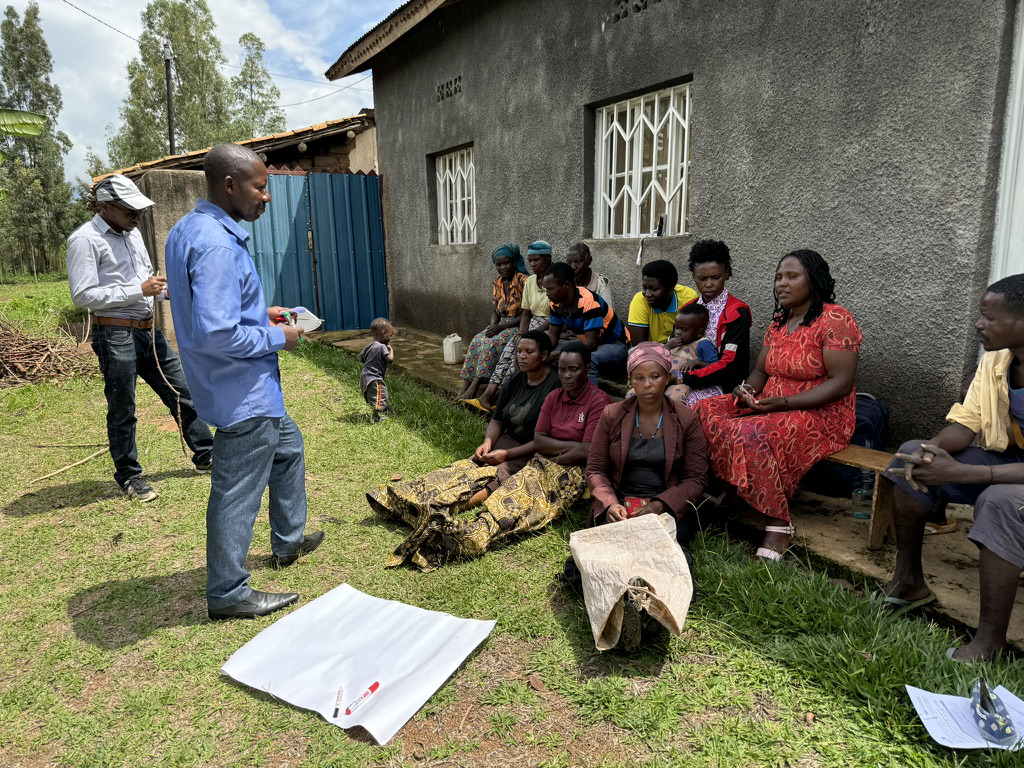
This can only succeed when all relevant actors are included: farmers, policymakers, advisors, scientists, and consumers. Food security doesn’t emerge in a laboratory – it grows through practical, inclusive processes rooted in people’s real lives.
CANALLs taught me how important participatory research is. Not as a one-way street of knowledge transfer, but as a shared learning journey. This experience fundamentally changed not only my academic view of development – but also my personal one.
